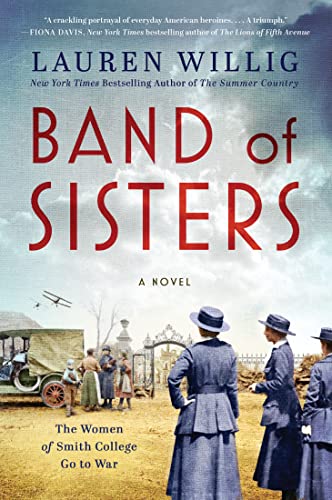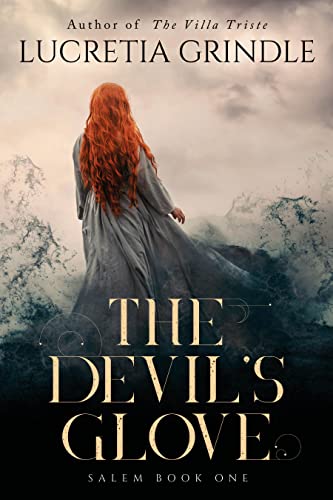Editor of Kindle Nation Daily
to download the complete novel for just $2.99
The Untold Story of the Lost Colony of Roanoke
by Paul Clayton
4.2 out of 5 stars 13 Reviews
Kindle Price: $2.99
Text-to-Speech: Enabled
Visit Amazon’s Paul Clayton Page
Find all the books, read about the author, and more.
- Kindle, Wi-Fi, 6″, Graphite – $139
- Kindle, Free 3G + Wi-Fi, 6″ Display, Graphite, 3G Works Globally – Latest Generation – $189
Free Kindle Nation Shorts
December 11, 2010
Maggie knew that this old man would do to her what the other had – if he could get her alone. She stood on the deck of Sir Walter Raleigh’s ship, the Lion, the afternoon sun burning through her simple gown of green linen, as she waited for her turn to be interviewed for a place in Raleigh’s New World Virginia Paradise. She had not eaten all day and the stench of garbage and pitch pine from the harbor threatened to make her retch. The old man, a sailor with a gray goat’s beard sprouting from his chin, sat at a table ten feet away, writing in a black leather-bound ledger open before him.
Maggie Hagger, seventeen years of age, had long, red hair and a fair, pretty face flecked with freckles. The ship, although tightly tethered to the quay, moved slightly on a swell. Maggie took her eyes off the man to look up at the looping white of the furled sails as they moved slightly across the blue vault of the sky. Like a graceful swan, this ship would take her far away to safety upon its downy back — if she got a contract of indenture! And get one she must… or hang!
“Next!” the old sailor said finally.
As Maggie approached, she looked to her left at twenty-five or so common people dressed in plain brown woolens and homespun, whose terms of indenture had already been purchased. They waited in the stark sunlight with their belongings in shabby bundles about their feet. On the other side in the shade cast by stacks of wooden pens containing sheep and hens, about a dozen of the better sort, dressed in fine clothes and wearing hats of bright colors, talked softly. They were all watching Maggie expectantly.
“Name?”
“Maggie Hagger.”
He had an ugly voice like the bark of a dog, recalling to Maggie the bray of the man who had pursued her and Thomas halfway across England. She remembered their escape from the London warehouse in the blackness of night. They had crept along the slippery stones of the exposed banks of the Thames as a horrid, faceless man shouted after them, “Redheaded whore! Wherever you go I will find you. Hear me! I will find you and you shall hang!” Maggie suspected that the man had had some connection to Thomas’s master.
Thomas, who was two or three behind Maggie in the line, called to her, “worry not, Maggie. We will soon be aboard.”
Maggie prayed that he was right. A fellow countryman, Thomas had been her traveling companion for much of the last year, but it was by chance and not choice. A dull looking, straw-haired lad of eighteen, Thomas stood out only by virtue of the jaunty fig-colored felt hat upon his head, its crown bulging up roundly like the crust on a newly baked pie. The old sailor continued his scribbling and Maggie looked at the crumpled handbill she had found nailed to a wall the day before. It had a drawing of a proud little merchant ship, its white sails bellied out by a fair breeze. She read silently:
“Step up, wench. Quickly!”
Maggie’s legs shook slightly from weakness and fear as she approached the man.
His eyes pawed over her body. “What is yer age?”
“Seventeen.”
He continued to speak as he looked down and wrote in his ledger, “And what service would ye be offering these gentlemen, wench?”
Guffaws of laughter came from some nearby sailors coiling some ropes and Maggie’s face turned crimson. “Cookmaid or serving girl,” she said quickly. “Child teacher too. I can read and write and sum.”
The old sailor looked up from his ledger. “We’ve already signed aboard the serving girls,” he said. He looked around at the crowd. “Be there anyone still in need of a cookmaid or child teacher?”
Silence greeted the question and Maggie felt the blood run out of her. She must find a place on this ship and sail away. She must! She looked around at the people but only indifference or amusement showed in their faces and her hope sank like a stone.
“Next!”
Maggie was turning to go when a gruff male voice called out, “Are ye a good cook, girl?”
A tall, muscled, middle-aged soldier pushed through the crowd. Maggie thought him handsome in a rough way, but something about him inexplicably made her wary.
“Aye, sir,” she said, taking in his broad shoulders, blue eyes, and thick brown hair. He smiled, attempting to put her at ease, but his eyes bore into hers so brazenly that she had to look away.
He turned to the old sailor. “I will pay ten pounds for her term.”
“Very well, Captain Stafford,” said the old sailor, “ten pounds.”
“I will pay fifteen!” The voice was kindly, but bold. Maggie looked up to see a white haired gentleman step out of the crowd. “I could use a wench to help my daughter, Eleanor.”
“Aye, Governor White,” said the sailor, “fifteen is offered.”
“Eleanor Dare has a husband to help her,” said Stafford, “and a father. I will pay sixteen pounds for the serving wench’s contract.”
The sailors had stopped their work to listen intently. The crowd grew quiet and craned their heads inquisitively.
“I will pay eighteen,” said John White.
The mast and yards creaked in a sluggish breeze. Captain Stafford placed his hands on his hips and shook his head. He laughed suddenly and raucously. “Very well, Governor. My quarters may well be untidy during the crossing but at least I shall retain my humble fortune.”
The sailors laughed. The old ledger-keeper scowled at them and they went back to their work. He turned to Maggie. “Very well, wench. Governor White has agreed to pay the cost of your transport to Virginia. For this ye will work for him and his daughter, Eleanor for a term of four years. She is with child and will need much care on the crossing. Do ye agree to this?”
Maggie could not help smiling. “Aye.”
The old sailor placed his knobby finger on the ledger. “Make your mark here.”
Maggie signed her name and walked across the waist to stand with the others. She was shocked to see Lionel the cutpurse among them. Lionel’s idiot son, Humphrey, who had always been at his side, was now nowhere in sight and Maggie wondered what had become of him.
Lionel had obviously seen Maggie, yet he would not look at her. He had disappeared the day before without a word of goodbye. No longer the patch-worn cutpurse masquerading as a gentleman, Lionel was now a humble yeoman farmer in brown homespun he had evidently stolen from a clothesline somewhere. Maggie marveled at the man’s ability to transform himself.
Her face still warm from all the eyes upon her, Maggie gave Lionel wide berth. A broad-faced, heavyset woman about a dozen years older than Maggie was signed next. Carrying two heavy bundles under her arms, she rocked back and forth as she crossed the deck. She stood next to Maggie, setting her bundles down with a sigh.
Her rough face softened into a smile. “‘Tweren’t more than a dozen behind me, Dearie,” she said softly, “so we shan’t have to stand here in this sun much longer.”
Maggie smiled upon hearing the lilting tones of her own country in the woman’s voice.
“Next!” called the old sailor and Thomas stepped forward.
“Yer name?” said the old sailor.
Thomas licked his lips. “Thomas Shande.”
“Age?”
“Eighteen.”
“What is yer occupation?”
“Apprentice cooper.”
The woman next to Maggie clucked her tongue impatiently. “Thinks he’s the grand high inquisitor…”
A nearby soldier cast a warning look but the woman went on undeterred. “The sun and sea have long since roasted what little brains the poor man had. That is why the heat bothers him not.”
Maggie smiled but she was beginning to worry. If Thomas did not get a place on the ship, would he let her go? Or would he turn her in out of jealousy? Sadly, she did not know the answer.
“To whom were ye apprenticed?” said the old sailor.
Thomas swallowed visibly, looking around at the people. “Ah… Master John Smith,” he lied. Someone in the crowd laughed. “He died last year, “Thomas quickly added, “and I have found no position since.”
“Well,” said the sailor, “we already have a cooper and he already has an apprentice.” He looked sternly at Thomas then said, “”Next!”
Maggie’s hopes fell as Thomas turned to go.
“Wait!”
It was the Captain who had attempted to buy her contract.
“Not afraid of hard work, are ye, boy?” the Captain asked Thomas.
Thomas shook his head. “Nay, sir.”
“Take off yer shirt.”
Thomas quickly took off his shirt and the Captain assayed his physique.
“I will buy his term for the company,” said the Captain. “He appears healthy and we can always use another strong back.”
“Aye,” said the old sailor. “Purchased for four years by Captain Stafford.”
Thomas came over to stand with the common people.
Maggie looked over at Lionel. With his thinning hair combed forward and his pointed little beard, he looked too cunning to be a farmer. His intelligent gray eyes met Maggie’s briefly and she read in them that he wanted to remain anonymous. She looked away.
“That is all for now,” the old sailor called to the crowd. “Take them below,” he said to one of the sailors
Maggie and the others picked up their things and followed the sailor to an open hatchway. Her worries and loneliness faded as she trudged down the steps. Shuffling footsteps reverberated in the dark passageways as Lionel deliberately lagged behind and Thomas disappeared somewhere. Maggie and the others squeezed through the narrow spaces, hugging their bundles and bags close. Finally they came out into a larger, open area amidships on a lower deck where daylight streamed down through latticework hatches. Four cannon pointed out through opened gun ports, admitting additional sunlight. A raised wooden hatch covered the entryway to the deck below. Straw-filled tick mattresses lay about on the plank floor between the cannons, half of them already occupied by women and children, a few of them asleep. The air was humid and tinged with the smell of sweat, but the breeze coming through the gun ports mitigated its unpleasantness. After having had her prayers answered and securing a place on the ship, Maggie knew she should be at peace. But only after they were safely at sea and her awful pursuer no longer a threat, could she rest easy.
“I slept in worse, I’ll tell ye that,” said the heavyset woman, breaking into Maggie’s thoughts.
Maggie smiled.
Maggie took a mattress and the heavyset woman took the mattress beside her. The woman’s words – the simple musings of a fellow traveler, someone who was not after Maggie for what she could get, but rather wanting only to pass the time – warmed Maggie like the glow of a fire. “What is your name?” Maggie asked.
“Elizabeth McNeil of Belfast. And ye?”
“Maggie Hagger.” Maggie saw Lionel Fisher enter the cabin and claim a mattress on the other side. He glanced briefly at Maggie and then lay back to rest. The light filtering down through the latticework grew dim as a cloud passed overhead. Elizabeth patted Maggie’s hand kindly. “‘Tis no fun being footloose, is it, Dearie? Always on the move, living hand-to-mouth. Well, that will soon change.”
Maggie nodded.
“And yer indentured to the governor and his daughter! They’ll take good care of ye, that I’ll wager.”
“Aye.” Maggie remembered the old gentleman’s kindly face and hoped Elizabeth was right. Several sailors entered and lay down more mattresses on the deck. One of them hung a gimbaled lamp from a hook on the bulkhead to be lit later.
“Who bought your contract?” Maggie asked Elizabeth.
Elizabeth smiled. “A young gallant from Devon, Sir James Duncan.” Elizabeth leaned conspiratorially close, “the one with a blue peacock’s feather flyin’ from a red Italian hat. He be a friend of Raleigh’s and looking to get rich stealing the savages’ gold.”
Thomas approached. Nodding to Elizabeth, he got down on one knee. “Maggie, there be a sow giving birth to a litter. Come and see.”
Maggie knew what he really wanted. She shook her head tiredly. “Nay. I am too tired. Show me on the morrow.”
Thomas got to his feet. “Suit yerself.” He walked off into the growing dimness.
Maggie closed her eyes, giving in to her exhaustion. Elizabeth’s voice roused her from falling into sleep.
“Maggie! That lad fancies ye! Better let him catch ye before ye get too old.”
Maggie shook her head. “I’ve had my fill of him since we left London.”
“London town!” said Elizabeth with wonder. “And why would you leave such a grand city?”
Maggie looked around for a place to keep their talk confidential. Some of the people were sleeping, a few snoring. “Let us go somewhere else,” she said.
They walked a little ways down the passage, coming to another open space. The dim golden light of a lamp revealed stacked casks and boxes rising like small hills. A farmer sat among them on a mattress. He looked at them tiredly. A few feet from him a thick door led to another passageway. Maggie tried it but it seemed to be bolted from the other side.
“Let me try?” Elizabeth grunted as she tugged at the door. “Tight as a drum.”
“They always lock the doors,” said the farmer.
“Pray tell why?” said Elizabeth.
The man frowned as if she should know the answer. “So ye will not run away. We had some run away while we were tied up in Portsmouth. Since then they always lock the doors.”
Elizabeth clucked scoldingly. “Treat us like beasts, they do.”
They went back to their quarters where the other lamp had been lit. “Let us sit,” said Maggie. “I am tired.”
After they sat, Elizabeth looked around and then said to Maggie, “you said you left London. Why?”
Maggie sighed. Elizabeth would not let her alone until she told her more. “I used to sell beer,” Maggie began, “to the tradesmen and sailors on the quays along the Thames.” Elizabeth nodded her head encouragingly. “Thomas worked as an apprentice in Master John Spencer’s cooperage on Shandling Quay. I was in the habit of stopping in to see him and we would talk of country and kin.”
Elizabeth nodded sadly. “Aye. Go on, girl.”
“This day when I went in, Thomas was not there.” In the telling, Maggie began to relive the event, finding herself once again in the dim coolness of the cooperage, the smells of freshly cut wood and resins filling her nose. Thomas’s tools lay scattered about near a huge, nearly completed tun cask, big enough to hold several grown men inside. When the barrel was finished, it would be filled with wine from the vats overhead.
Maggie heard shuffling. The old woman who cleaned the place came down the stairs carrying her broom. Maggie cringed at the sight of her dirty skirts and unkempt hair, her wrinkled skin. A hag is what she was. It was an uncharitable thought, Maggie knew, but the old Englishwoman made no secret of her dislike for Maggie and so to hell with her. Maggie was about to go back out into the street when someone called her.
“Wench! Up here.”
From a small window in his loft, Master Spencer, the Cooper waved to her to come up. She climbed the stairs. The door to his office was open and she looked in. He leaned over a table full of drawings and drawing tools. He looked over and waved her in. “Close the door,” he ordered, “yer invitin’ the flies in.”
Maggie’s breathing had quickened from the stairs. She looked around for Thomas as she quickly poured a cup of beer for Master Spencer. She handed him the cup and he regarded her calmly as he slowly drank it.
“Where is Thomas,” she asked when he finished.
“I sent him on an errand. He will soon return.”
Maggie took the cup Master Spencer handed her and turned to go.
“Wait,” he said. “Pour another.”
She did as he asked and again he drank it slowly, regarding her all the while. He smiled and her breathing slowed somewhat. She looked over at the door, wishing Thomas would come. “Perhaps I’ll not be seeing him today,” she said.
“Wait,” said Master Spencer. He handed her the cup. “If ye go he’ll be mopin’ about the rest of the day.”
Maggie nodded.
Spencer leaned over his drawing table. “Take that heavy flagon off yer shoulder, girl and take a proper rest. I’ll not steal yer beer.”
She smiled and set the flagon on the floor. As Spencer went back to work, she turned to look at a painting of horses running through a pasture on the far wall. After a while the hairs on the back of her neck began to rise up. She turned. Master Spencer had stopped his work and was staring at her.
“So,” he said, straightening up, “ye fancy Thomas, do ye?”
Maggie blushed. She glanced over at the door. “He’s a good lad,” she said. “We talk.”
Master Spencer came closer and Maggie could see that he was breathing heavily.
“That is all, ’tis it?” he said. “Ye do not lift yer skirts for him? Only talk?”
Elizabeth was patting Maggie’s hand. “Take it easy, girl. Yer fit to be tied! Take a breath and calm yerself.”
Tears passed Maggie’s tightly clenched eyes. In the dim lamplight, she could barely make out her new friend’s features.
“There, girl,” said Elizabeth, “there… Now. Tell me what happened next.”
“The master forced himself on me.”
“Did it … go all the way?”
Maggie nodded.
Elizabeth frowned with concern. “There… there. Then what happened?”
Thomas returned and saw us and beat him badly.”
Maggie watched Thomas hoist the master’s unconscious bulk over his shoulder as she began wiping the blood from the floorboards. Thomas’s steps receded and she worked quickly, sweat running down her brow and into her eyes. As the day’s light slowly dimmed, the sounds of hammering came from below. She called down the stairs but received no reply. Finishing, she sat exhausted. Not long afterward, hurried footsteps thumped up the stairs. Thomas opened the door. “It is done. Let us away now!”
“We ran away,” said Maggie.
“To where?” said Elizabeth. “I would not know where to hide.”
Maggie shook her head as if she still could not believe her own story. “We took up with a thief, you know, a cutpurse, and he took us on the road with him.”
“A cutpurse!” said Elizabeth.
“Aye,” said Maggie. “He led us across Devon and finally to Plymouth. Some horrid man tracked us at every turn and we barely managed to stay a step ahead of him.”
“What ever happened to this cutpurse?” asked Elizabeth.
Maggie pointed to the mattresses across the cabin. “He sleeps over there.”
Elizabeth’s eyes grew large as she stared into the dimness. “God in Heaven! There be not much difference ‘tween a cutpurse and a cutthroat.” Her eyes narrowed. “Would he be the one with the pointy little beard?”
“Aye,” said Maggie. “He is not a bad man. He has an idiot son named Humphrey, who traveled with us. But I know not where he is now.”
Elizabeth shook her head. “Girl, ye have had a time of it. Now ye must get some sleep.”
They went over to their mattresses and sat down.
Sometime in the night Maggie awoke to laughter and cursing as a dozen ruffians, several of them holding lamps, burst into the cabin carrying half a dozen unconscious men. Maggie and the others sat up on their mattresses, shielding their eyes from the light.
“Pressmen,” Elizabeth whispered to Maggie. “They harvest the alehouses and gutters for seamen.”
Share via:














